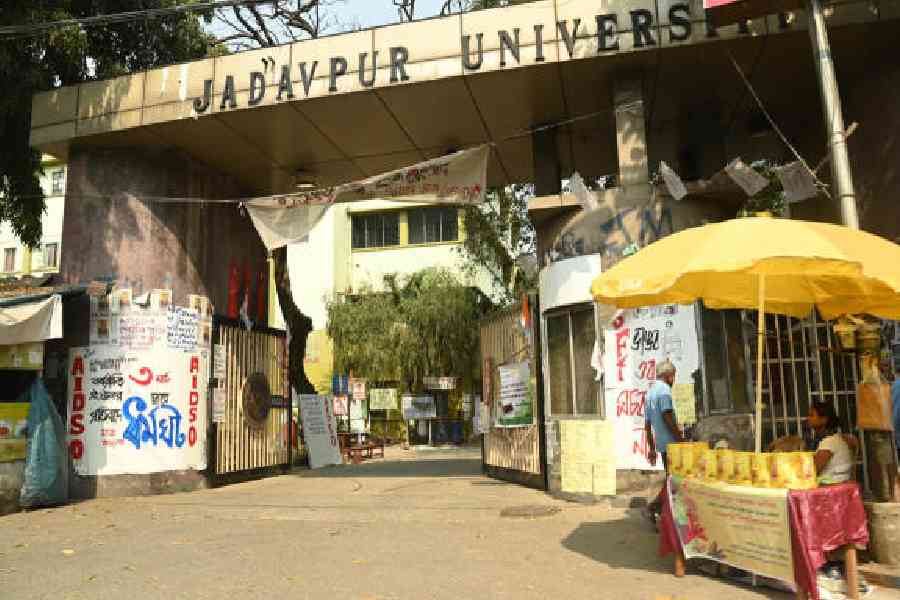Cirkus is low on comedy and high on errors. In fact, this film — based on Shakespeare’s The Comedy of Errors and an attempted upgrade of Angoor — is one huge mistake that should have never been made.
The Comedy of Errors, about two sets of twins separated at birth and then put together in a close-knit space, giving rise to hilarious misunderstandings is a goldmine for comedy. The fact that the reader/viewer is privy to their situation but the twinsx2 aren’t, makes the situational humour even more impactful.
A lot of this was evident in Angoor, the glorious 1982 film in which Sanjeev Kumar and Deven Verma just had to look confused to make you laugh. But Gulzar and Rohit Shetty are not two names that one should utter in the same breath.
I am no purist, but some films are better left untouched, especially if they have to end up in the hands of someone like Shetty whose idea of comedy lies in making two people hurl insults at each other. Over the years, Rohit Shetty’s films have been described as everything from offensive to over-the-top.
Boring has never been one of them. But Cirkus — despite its loud dollops of colours, screaming actors and loud, physical comedy — is unbelievably dull and criminally unfunny. Not a single joke lands, not a single gag works. In fact, there are actually two running gags that Shetty props his 138-minute film on — someone gets an electric shock or someone gets slapped.
None of which are funny, and most often, both happen to the same person. Cirkus begins in the 1940s and plays down to the ’60s and ’70s. Which gives Shetty the licence to stuff the screen with retro colours and garish sets so loud that you often long for 3D glasses — not to watch the film better, but to just filter out the obnoxiousness on screen.
Setting Cirkus partly in Ooty means that Shetty gets to rehash his lush tea gardens frames from Chennai Express. The electric blue skies are borrowed from Golmaal Again. A song — the music is so dull that you can hardly remember any — is shot on the same set as Manma emotion jaage from Dilwale. A ‘Hollywood’ touch comes in the form of the staff in a Ooty hotel given the same uniforms as one saw in The Grand Budapest Hotel.
The plot that Cirkus (the spelling is still a mystery, so is the relevance of the circus in the film) hinges itself on requires a huge sense of disbelief that needs to be consistently rewarded by the entertainment that plays out on screen.
The film begins in 1942 where a doctor (Murali Sharma), born and brought up in an orphanage, switches two sets of twins about to be adopted by two families as part of a social science experiment where he wants to prove that upbringing is superior to bloodline. The two sets of twins, both of whom are called Roy (Ranveer Singh and Ranveer Singh) and Joy (Varun Sharma and Varun Sharma) grow up in different environments. One set is adopted by a wealthy family in Bangalore, while the other is taken home by a circus owner in Ooty.
When Roy in Ooty discovers he’s immune to electricity, he becomes the star attraction — known as ‘Electric Man’ — at the circus he’s inherited from his father. But every time electricity passes through him without even displacing a lock of his hair, it sends his twin in Bangalore into a bout of fits, like the climax of every Priyadarshan comedy out there. In Cirkus, you are expected to laugh every time that happens, which is almost every few minutes in the film.
And then, of course, are the insults thrown in with abandon. An old woman is referred to as “buzurg lomri” a few times. A faithful employee is called a “loyal puppy”, who also obliges with a few ‘barks’. A bald man is addressed as “human lollipop”. And then is the body shaming that the two Joys are constantly subjected to. Most of all, this comes in courtesy Sanjai Mishra’s character, who ironically, turns out to be the only one remotely watchable, even when he is made to mouth cringe-y lines like, “Samundar mein susu karne se tsunami nahin hoti”. A large number of actors adept at comedy — Johny Lever to Tiku Talsania, Mukesh Tiwari to Ashwini Kalsekar — walk in and out of Cirkus, but make little impact. Only Siddhartha Jadhav, channeling Lever himself, brings on some laughs.
The big letdown in Cirkus is Ranveer Singh. For all the electricity that runs through the film and gives rise to its narrative chaos, Ranveer — otherwise a certified livewire, both on screen and off — has no spark in Cirkus. And neither does he have any chemistry with his leading ladies Pooja Hegde and Jacqueline Fernandez, both of whom are reduced to stereotypes.‘Please don’t try the stunts at home’ is the warning at the beginning of Cirkus. ‘Please don’t try this film’ is a friendly year-end suggestion from us.
I liked/ didn’t like Cirkus because... Tell t2@abp.in
Cirkus (u/a)
Director: Rohit Shetty
Cast: Ranveer Singh, Pooja Hegde, Jacqueline Fernandez, Johny Lever, Sanjai Mishra, Varun Sharma, Siddhartha Jadhav, Murali Sharma, Tiku Talsania, Brijendra Kala,
Running time: 138 minutes











